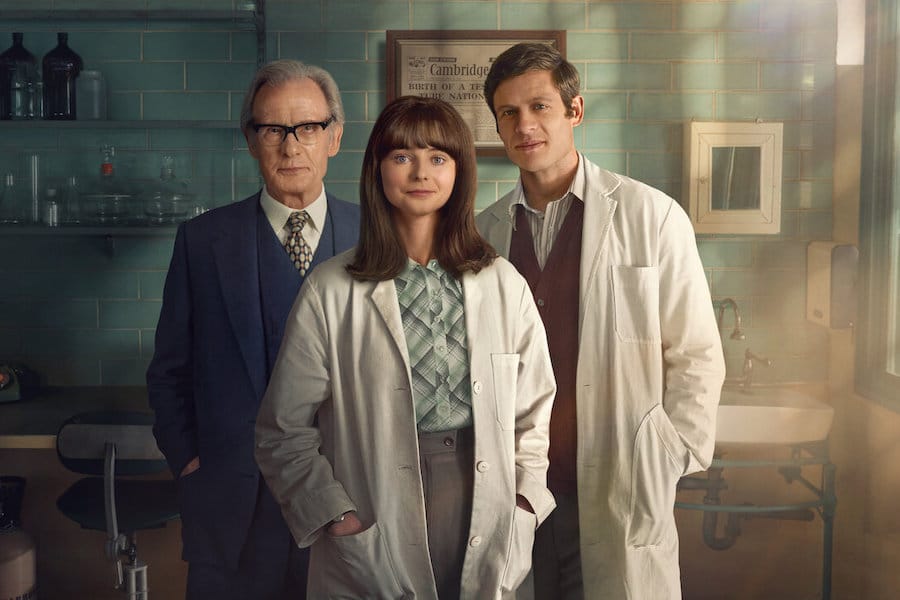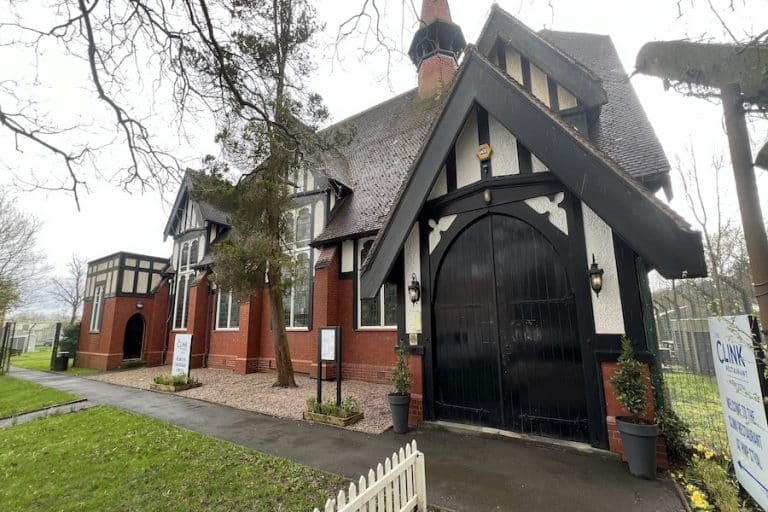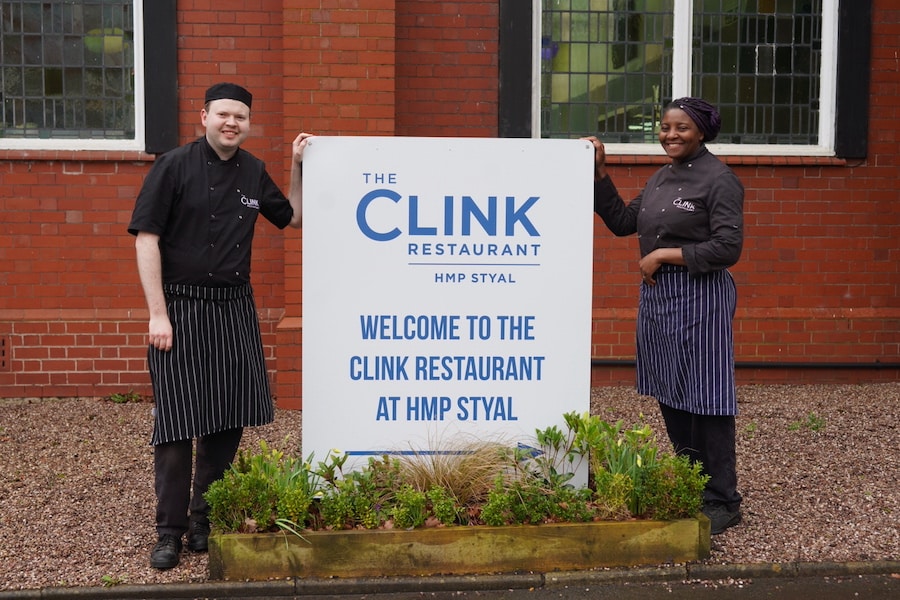The pioneering doctors who changed science forever and inspired the new Netflix series Joy
- Written by Thom Bamford
- Last updated 4 months ago
- City of Manchester, Featured, History, People

Every child’s birth is a miracle, but in 1978, one tiny baby girl born in Oldham carried the hopes and dreams of millions.
Louise Joy Brown, the world’s first “test-tube baby,” was born.
For nine long years, her parents, Lesley and John Brown, had faced the anguish of infertility, their dreams of a family slipping further out of reach. But thanks to a small team of pioneers working in secret, their impossible dream came true.
Now, Netflix’s latest series, Joy, directed by Ben Taylor (Sex Education), retells this extraordinary story—one that began in a small town in Greater Manchester and forever changed the way the world thinks about life, family, and the power of hope.
Joy
Every birth carries its own story, its own set of challenges and triumphs. However, Louise Joy Brown’s arrival was unparalleled, symbolising the culmination of a decade-long quest by a dedicated team of surgeons, scientists, and embryologists.
Born on July 25th, 1978, at Oldham General Hospital, Louise’s birth was the result of pioneering in vitro fertilisation (IVF), a procedure that had been fraught with skepticism and ethical debates.
Lesley and John Brown had endured nine gruelling years of trying to conceive naturally, battling the devastating blow of blocked fallopian tubes that rendered Lesley infertile.
Their journey was one of immense emotional strain, societal pressure, and the ever-present fear of remaining childless. When they entered the Centre for Human Reproduction in Oldham in 1977, their hope was intertwined with the uncertainties of a groundbreaking experimental procedure.
The pioneers behind the miracle of IVF
Joy on Netflix masterfully chronicles the relentless efforts of three visionary men who dared to challenge the boundaries of reproductive science: embryologist Jean Purdy, scientist Robert Edwards, and surgeon Patrick Steptoe.
This trio worked tirelessly in the late 1960s and 1970s, driven by a shared belief that infertility could be conquered through scientific innovation.
Jean Purdy, portrayed by Thomasin McKenzie (The Power of the Dog), was the unsung hero of IVF. As a young nurse and embryologist, Purdy’s meticulous work in the laboratory was crucial.
She was the first to observe the division of Brown’s embryonic cells, a momentous discovery that signalled the success of the IVF process. Her dedication and expertise were instrumental in navigating the scientific and ethical challenges that accompanied their pioneering work.
Robert Edwards, played by James Norton (Grantchester, Black Mirror), was the physiologist whose groundbreaking research laid the foundation for IVF. His relentless pursuit of understanding human reproduction and his ability to innovate under pressure earned him the Nobel Prize in Medicine in 2010, posthumously recognising his monumental contributions.
Bill Nighy (Love Actually, The Beautiful Game) brings Patrick Steptoe to life—the surgeon whose expertise in laparoscopy enabled the retrieval of eggs from women, a critical component of the IVF process.
Steptoe’s partnership with Edwards and Purdy was marked by both professional collaboration and personal camaraderie, forging a bond that was essential to their collective success.
Oldham’s role in the IVF breakthrough
Oldham’s role in this historic breakthrough cannot be overstated. The Centre for Human Reproduction became the epicentre of IVF research, attracting volunteers and patients from all over the United Kingdom.
The town’s quiet streets and unassuming hospitals became the backdrop for a revolution in reproductive medicine.
The establishment of a commemorative plaque at Royal Oldham Hospital in March 2022 honours the significant contributions of Sister Muriel Harris and Jean Purdy, recognising their pivotal roles in the IVF breakthrough.
This tribute serves as a lasting reminder of Oldham’s place in medical history and the profound impact of their work on future generations.
The miracle of Louise Joy’s birth
The journey to Louise Joy’s birth was anything but straightforward. The team faced numerous setbacks, including over 100 unsuccessful attempts to implant embryos.
Each failure was a test of their resilience, pushing them to refine techniques and innovate solutions.
The emotional toll on the Brown family was immense, as Lesley and John grappled with the agony of unsuccessful attempts and the weight of their parents’ dreams resting on their shoulders.
Yet, amidst the trials, there was unwavering support and camaraderie within the team.
The bond between Purdy, Edwards, and Steptoe was not just professional but deeply personal.
Their shared vision and mutual respect fuelled their perseverance, enabling them to overcome societal skepticism and ethical dilemmas surrounding IVF.
Ethical quandaries and societal impact of IVF
Louise Joy’s birth sparked intense ethical and religious debates. The media’s portrayal of her as a “test-tube baby” oversimplified the intricate and delicate process that actually took place in a Petri dish.
This misrepresentation fuelled fears and misconceptions about artificial insemination and its implications for society, including concerns voiced by religious leaders like Cardinal Albino Luciani (later Pope John Paul I), who feared the commodification of women’s reproductive capabilities.
Despite these controversies, the Browns’ desire to have a child and the team’s scientific achievements triumphed, setting the stage for IVF to become a mainstream fertility treatment. The ethical questions raised by their work continue to influence discussions on reproductive rights and medical advancements today.
The legacy of Joy Brown
Louise Joy Brown’s story is not just one of scientific triumph but also of personal resilience and legacy. As an ambassador for IVF, Louise has dedicated her life to breaking the silence around fertility issues and advocating for the acceptance of scientific methods in conception. Her younger sister, Natalie Brown, also conceived through IVF, became the world’s 40th IVF baby and made headlines in 1999 as the first to give birth naturally without the aid of IVF.
In her personal life, Louise has found joy and fulfilment.
She married Wesley Mullinder in 2004, with Robert Edwards attending their wedding—a testament to the deep bonds formed through their shared journey.
Louise’s sons, conceived naturally, symbolise the full-circle journey from the struggles of infertility to the joys of a naturally conceived family.
Bringing Joy to Life
Ben Taylor’s direction, combined with the co-creations of Jack Thorne and Rachel Mason, has resulted in a series that is both emotionally resonant and historically accurate.
Joy not only pays homage to the scientific achievements but also delves into the personal lives and struggles of those involved. By focusing on Jean Purdy’s perspective, the series sheds light on the often-overlooked contributions of women in scientific breakthroughs, adding depth and nuance to the narrative.
The casting of Thomasin McKenzie, James Norton, and Bill Nighy ensures that the characters are portrayed with the complexity and humanity they deserve.
Their performances bring authenticity to the story, allowing viewers to connect deeply with the emotional and ethical dilemmas faced by the pioneers of IVF.
A Story of Hope and Innovation
Joy is a celebration of human ingenuity, compassion, and the relentless pursuit of a dream.
The series underscores the importance of perseverance in the face of adversity and the profound impact that scientific advancements can have on individual lives and society as a whole.
Oldham’s role in this narrative is a source of local pride, highlighting how a small town contributed to one of the most significant medical breakthroughs of the 20th century.
As viewers around the world tune into Joy, they are not only witnessing a pivotal moment in medical history but also experiencing the heartfelt human stories that make this achievement truly remarkable.
Louie Joy Brown’s advocacy work
Louise Joy Brown’s life and the story of her birth continue to inspire and influence.
Her advocacy for IVF and her openness about her origins have helped destigmatise fertility treatments and foster a more inclusive understanding of family and conception.
The legacy of Purdy, Edwards, and Steptoe lives on, not only through the millions of lives touched by IVF but also through cinematic portrayals that keep their stories alive for future generations.
As Joy streams on Netflix, it serves as a testament to what can be achieved when passion, science, and humanity intersect.
Oldham’s story is a reminder that behind every medical breakthrough are individuals whose dedication and heart shape the future, turning dreams into reality and redefining what is possible.
How to watch Joy on Netflix
You can watch Joy on Netflix by clicking here
- This article was last updated 4 months ago.
- It was first published on 22 November 2024 and is subject to be updated from time to time. Please refresh or return to see the latest version.
Did we miss something? Let us know: press@ilovemanchester.com
Want to be the first to receive all the latest news stories, what’s on and events from the heart of Manchester? Sign up here.
Manchester is a successful city, but many people suffer. I Love Manchester helps raise awareness and funds to help improve the lives and prospects of people across Greater Manchester – and we can’t do it without your help. So please support us with what you can so we can continue to spread the love. Thank you in advance!
An email you’ll love. Subscribe to our newsletter to get the latest news stories delivered direct to your inbox.
Got a story worth sharing?
What’s the story? We are all ears when it comes to positive news and inspiring stories. You can send story ideas to press@ilovemanchester.com
While we can’t guarantee to publish everything, we will always consider any enquiry or idea that promotes:
- Independent new openings
- Human interest
- Not-for-profit organisations
- Community Interest Companies (CiCs) and projects
- Charities and charitable initiatives
- Affordability and offers saving people over 20%
For anything else, don’t hesitate to get in touch with us about advertorials (from £350+VAT) and advertising opportunities: advertise@ilovemanchester.com

Head down the rabbit hole for Adventures in Wonderland with Z-arts

Major rail investment set to transform Manchester-Leeds commutes

“His presence will be deeply missed” Children’s hospice bids farewell to their visionary CEO

Has Gordon Ramsay created Manchester’s ultimate bottomless brunch?

The Clink celebrates ten years of empowerment and second chances
















